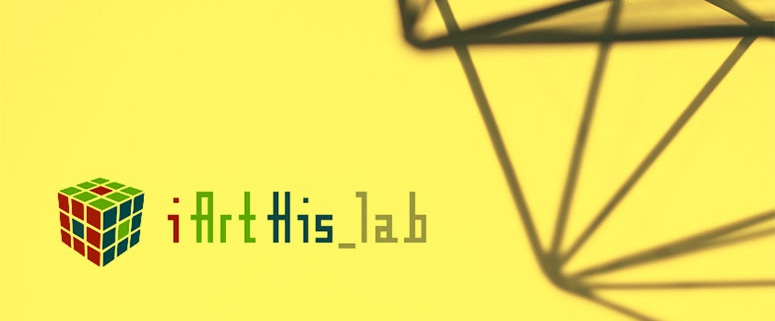iArtHis_Lab and analysis strategies based on computer technologies
The iArtHis_Lab research group explores the possibilities of analysis strategies based on computer technology to analyse and visualise dynamically, the configuration of certain cultural and sociocognitive phenomena of contemporary society, creating thereby reusable knowledge unreleased by various agents and sectors, including social development and its transfer to industry. In the specific framework of this research, the Exhibitium project focuses on the phenomenon of artistic exhibitions held regularly by galleries, museums and art centres, analysing them in their capacity as complex cultural phenomena that result from the establishment of a set of relationships between a variety of actors, but also as strategic factors in generating social dynamics and economic movements.
What does analysis of temporary art exhibitions provide us with? The exhibitions are generated using a combination of very heterogenous and diverse data that is easily visible through quantitative analysis: demographic data for visitors; intra and transnational flows of public; the dominant flows in the process of artistic display; data on the greater or lesser presence of certain artists and artistic movements according to diverse geospatial contexts … Others are more difficult to visualise, and require specific analysis that interconnect multiple variables with each other to determine patterns of behavior and complex cultural dynamics, knowledge that is extremely interesting both from the critical-interpretive and prospective-strategic point of view.
The current situation offers us a favourable stage to analyse this data: in the first place, because a good amount of what we could call raw data is available online through the intstitutions (museums, art centers, galleries) own publication and digital broadcasting, so they are likely to be captured and compiled in an automated manner through technological surveillance systems. Secondly, the development of specific technologies associated with knowledge engineering (KE) and the computer processing of data on a large scale (data mining) allow us to analyse them from distinct perspectives (statistical-quantitative results, network configuration and operation (network analysis), geospatial distribution, etc.), which makes it possible that a same set of well structured data (dataset) will be able to get different results for different purposes.
In addition, our proposal is based on the conjugation of a series of computer technologies and analysis methodologies derived from technological surveillance, network analysis and KDD strategies (Knowledge Discovery in Databases), that allows us to capture, register, structure and process this data in a meaningful way; and extract unpublished knowledge based on quantitative and qualitative parameters (networks, clusters and patterns) to make them useful and reusable, by means of open and interoperable data systems.
The iArthis_Lab group won the spin-off prize from the Santander University Foundation for the best idea for a technology company aimed at the cultural sector in the 2013 convocation spin-off prize from the University of Málaga. The objective of the business idea was to make the research developed by iArtHis_Lab useful for the cultural sector. This award has led to the creation of spin -off Culturacy , SL.


